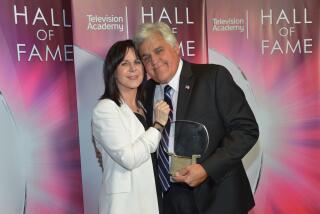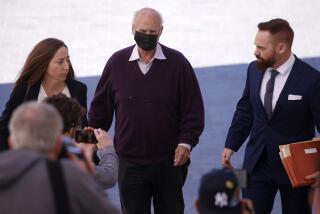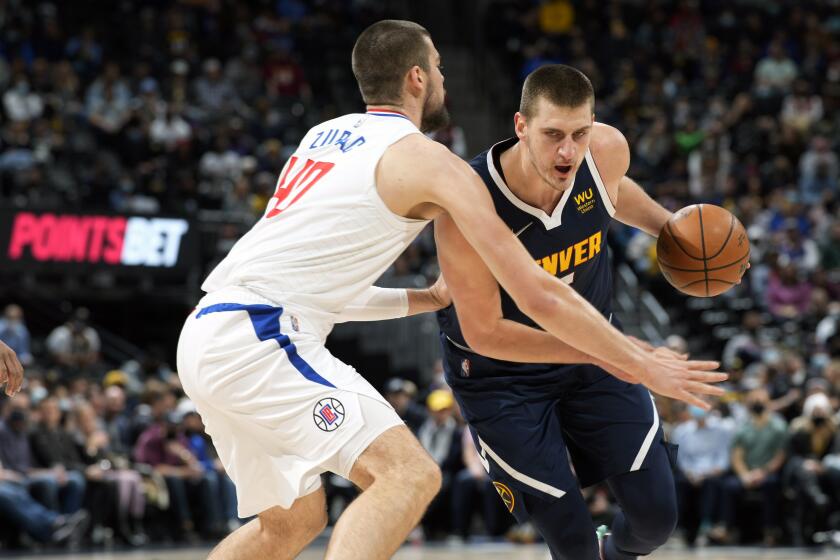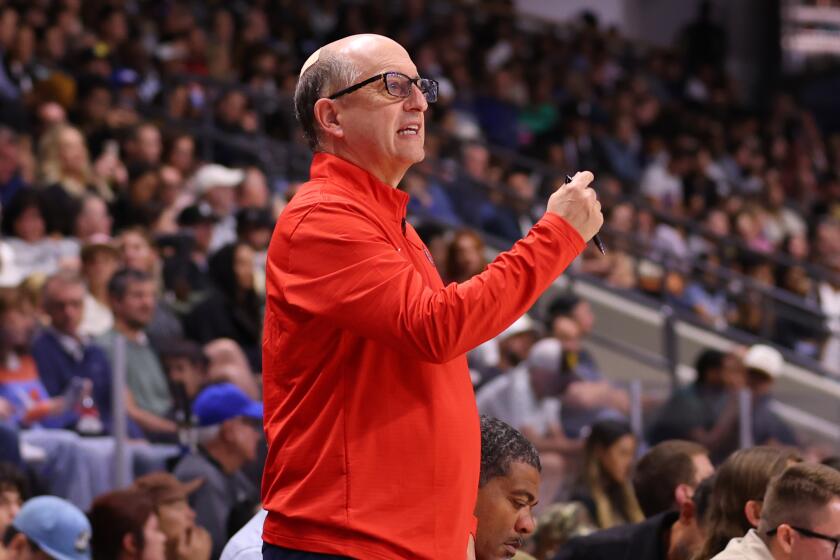Shelly Sterling appears to have early edge in legal fight with Donald
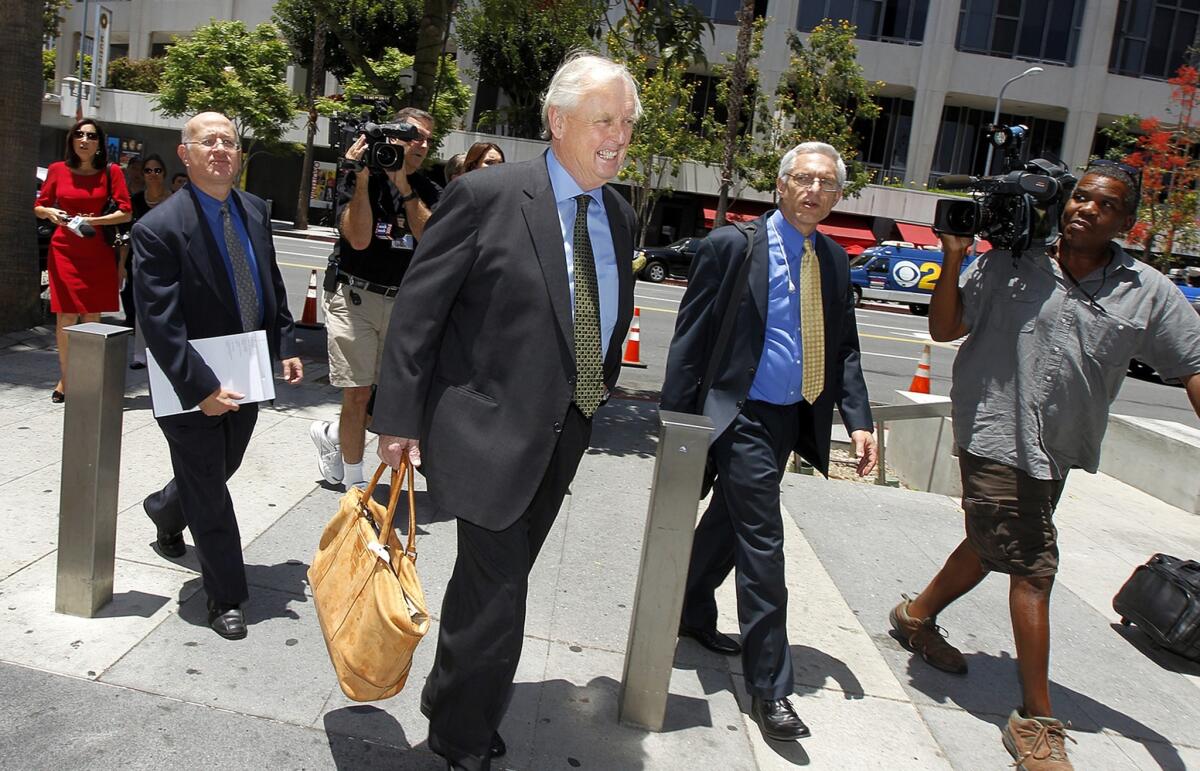
Shelly Sterling appeared to have the advantage after an initial hearing in probate court Monday, with a Los Angeles Superior Court judge saying that the terms of a family trust may give Donald Sterling little room to rebut a finding that he is mentally incapable of continuing as co-owner of the Clippers.
Judge Michael Levanas put off for at least a week a ruling on the scope of a trial on Shelly Sterling’s takeover of the family trust. She initiated the proceeding, asking the court to affirm both her control of the trust and her sale of the NBA team.
Levanas’ initial comments suggested her path to controlling the trust could be relatively simple.
“As I sit here right now, I don’t see how this [trust] document is ambiguous and you are going to go behind it” to have a full hearing into Donald Sterling’s mental competency, Levanas told lawyers for Donald Sterling.
The Sterling Family Trust, written in the 1990s and renewed last December, says that either of the Sterlings can be removed as co-trustee if two qualified doctors find that they are mentally incapacitated. That finding can be made without a court’s approval.
Shelly Sterling, 79, used the mechanism to take control of the trust on May 29 and sold the Clippers that night to former Microsoft chief executive Steve Ballmer for an NBA-record $2 billion. She asserted sole control of the trust after two psychiatrists wrote reports saying her 80-year-old husband is not mentally capable of managing his business affairs.
Levanas asked attorneys for Donald and Shelly to file additional papers before another hearing next Monday.
Unless lawyers for Donald Sterling can show that the trust provision for incapacity was unclear, Levanas said, his job might amount to little more than a “check list” — confirming that the two neurologists who examined Donald were qualified and that they found him incapable of conducting business as usual.
Ballmer’s lawyer, Adam L. Streisand, participated in Monday’s hearing and said he believes that the judge will hold a short trial to confirm the findings of the experts — Dr. J. Edward Spar and Dr. Meril Sue Platzer — and then validate Shelly Sterling’s actions.
“The other side is trying to bring in a lot of noise and trying to rewrite the trust to say something it doesn’t say,” Streisand said after the hearing. “And the judge is saying, ‘I don’t see it. There is nothing ambiguous here. It’s crystal clear.’”
Without Donald Sterling’s consent to sell the Clippers, the sales agreement calls for a judge to find that Shelly Sterling had the authority to sell. The probate hearing is set to begin July 7, in time for other NBA owners to validate Ballmer’s purchase when they meet July 15.
“We really want this $2-billion, record-shattering sale — 3 1/2 times anything else that has ever happened — to go forward,” said Shelly’s lead attorney, Pierce O’Donnell. “It’s in the best interest of Donald Sterling and Mrs. Sterling and the trust.”
After briefly saying that he would go along with the sale, Donald Sterling balked. He said he does not want to sell and objects that the NBA refused to drop a $2.5-million fine and lifetime ban against him for saying on an audio recording that he did not want his companion to bring blacks to Clippers games.
Donald Sterling’s lawyers argued that Sterling should be granted a competency hearing. They asked Levanas to postpone the proceeding for a month because their lead witness, dementia expert Jeffrey L. Cummings of Las Vegas, will be out of the country for most of July.
They also asked Levanas to reinstate a provision of the Sterling trust that allowed a trustee “booted out” for incapacity to be reinstated, based on the word of additional experts. Attorney Max Blecher said that codicil “just disappeared” inadvertently and should be restored by the court to enable Sterling to have his side heard.
Shelly Sterling’s attorney, O’Donnell, argued that the sale needed to be completed to maintain the $2-billion price. A failure to separate Donald Sterling from the team could cause Ballmer and other potential sellers to flee, leaving only “bottom feeders,” O’Donnell said.
Blecher argued that “it is equally or more likely that with the passage of time the Clippers will be worth more than the amount now being considered.”
Levanas asked lawyers to file papers on several issues before next week’s hearing. He asked Donald Sterling’s lawyers to explain why expert Cummings cannot appear sooner or by video deposition, and most importantly, to justify the need for a competency hearing, when the trust seems to make clear that the findings of two doctors can lead to a trustee’s ouster.
Levanas asked Ballmer’s lawyer to justify his continued presence in the case. Streisand said probate law allows for those with an economic interest to take part in matters in which they are not the central players.
Despite saying the trust language seemed to require only a brief recap of Shelly’s assumption of control of the trust, Levanas said it made him uncomfortable to think of the “huge consequence” of a decision made with very little information.
The judge said he wouldn’t want to sign an incapacity agreement like the one in the Sterling trust. “My wife and I are getting along today, but I don’t know what’s going to happen,” Levanas quipped. “It seems this is a very broad way of removing someone as a trustee.”
More to Read
Get our high school sports newsletter
Prep Rally is devoted to the SoCal high school sports experience, bringing you scores, stories and a behind-the-scenes look at what makes prep sports so popular.
You may occasionally receive promotional content from the Los Angeles Times.

